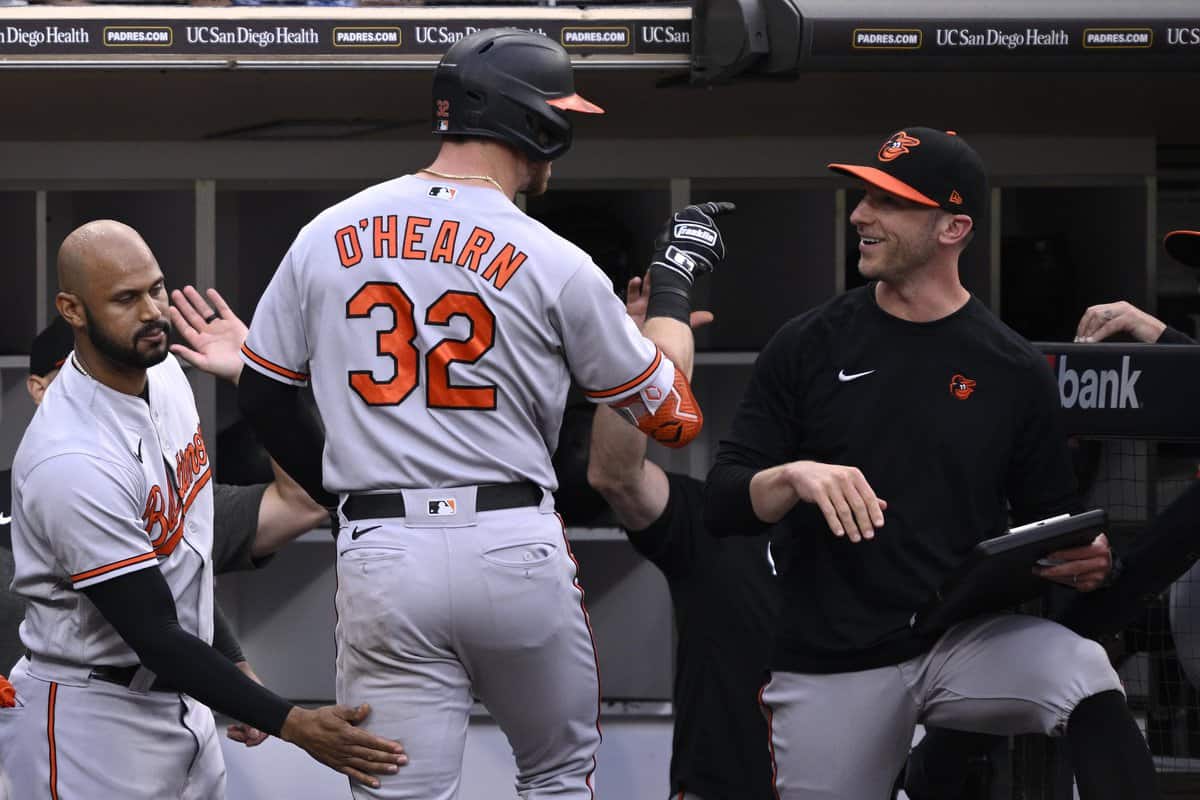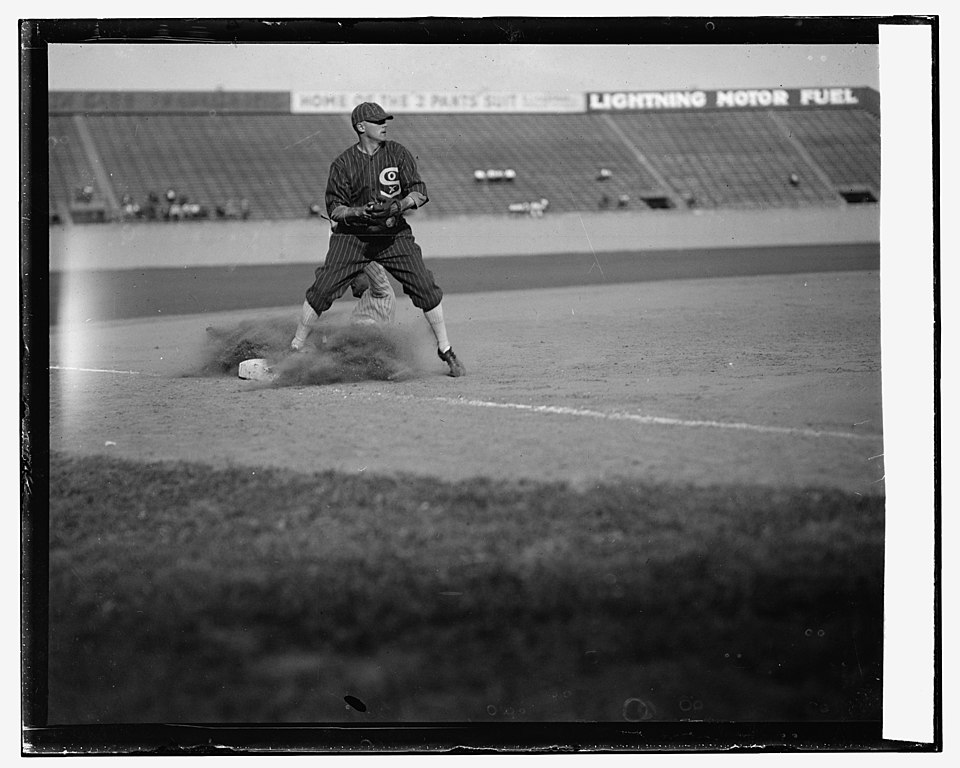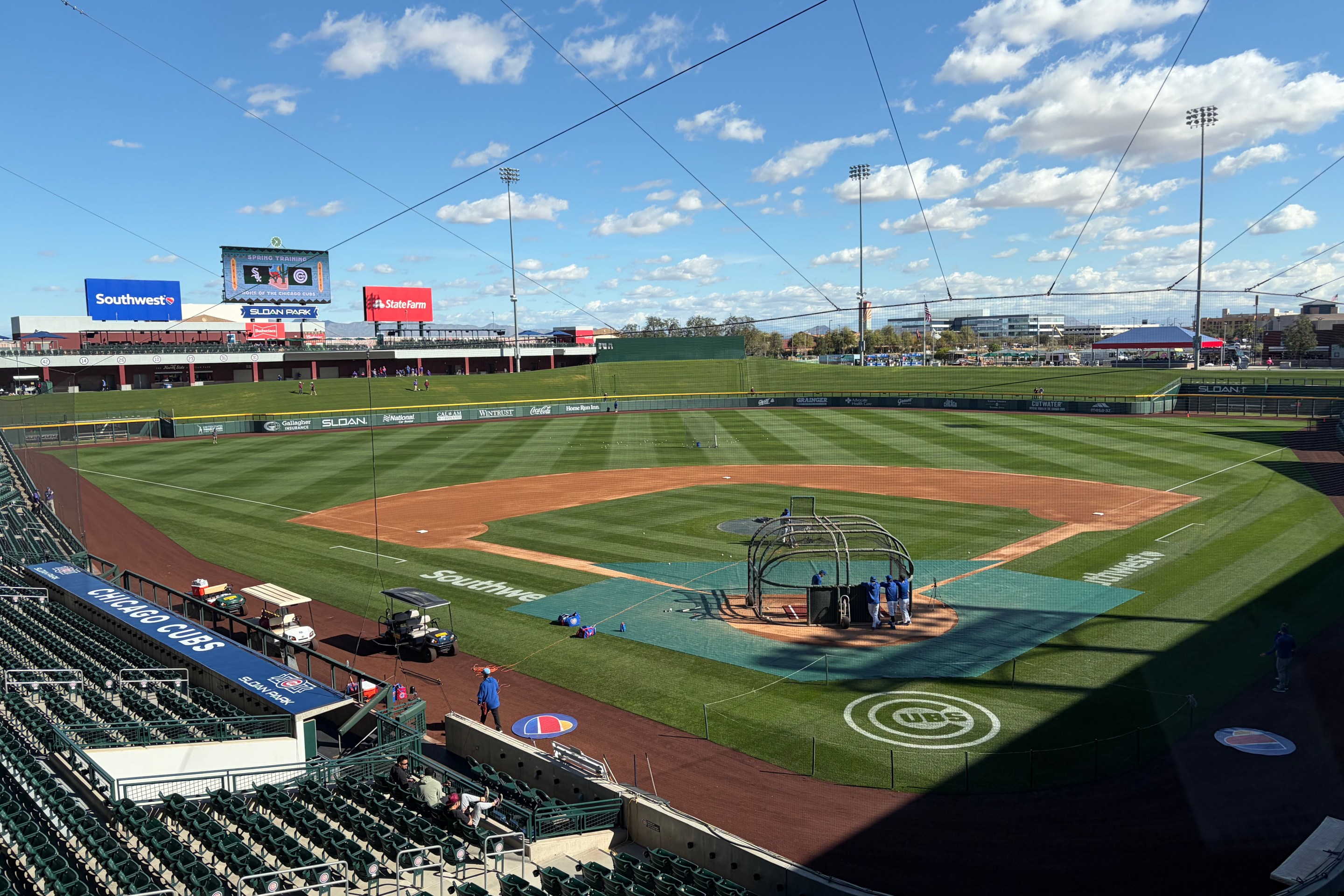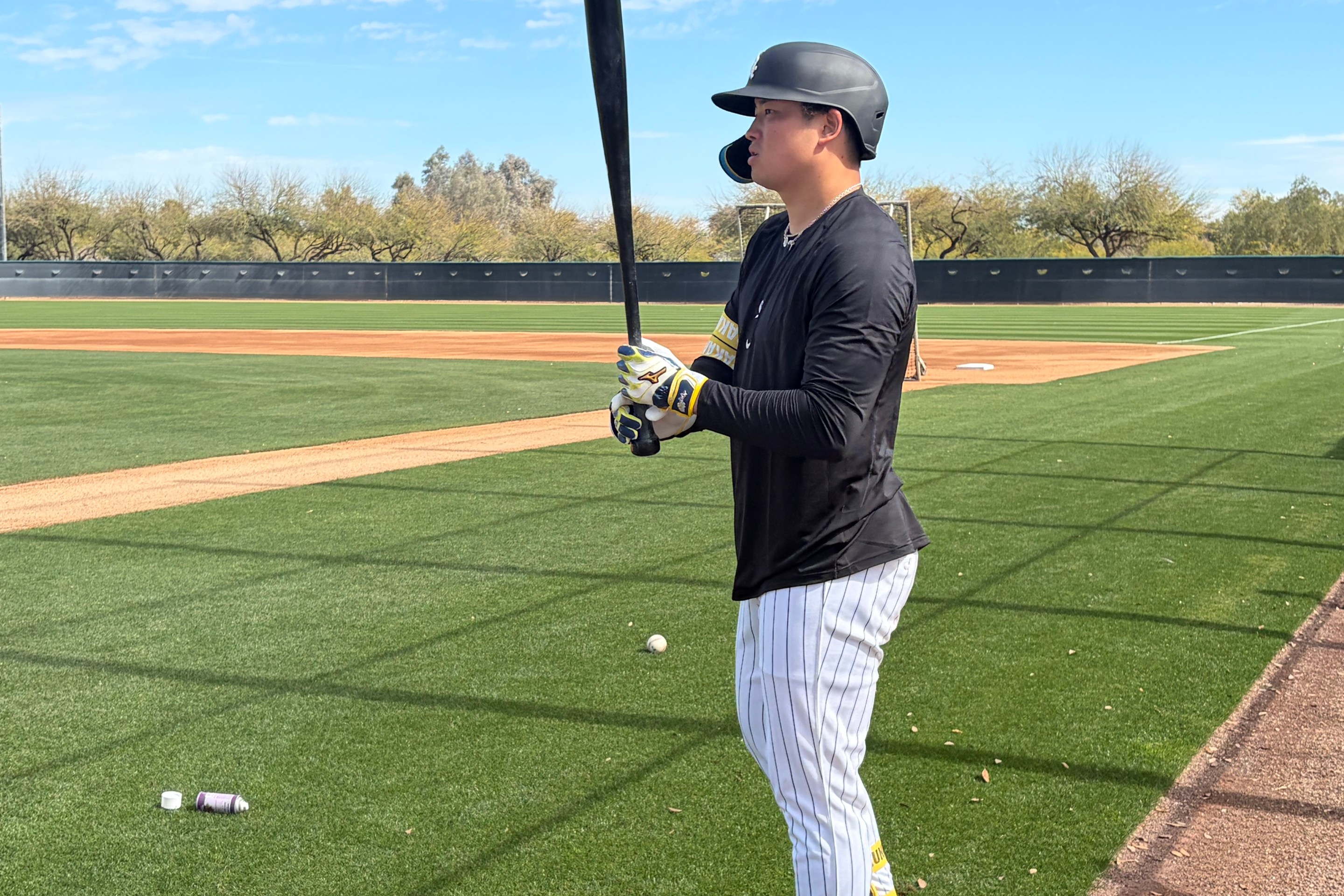On Thursday afternoon the White Sox formally announced something Josh texted me while I was in Benidorm: Ryan Fuller is their new director of hitting.
That Will Venable narrative was on the long side and if Brian Bannister is any indication, there will be about 30 articles in this space involving Fuller over the next eight months, so maybe a subhead-heavy breakdown will do for an introductory Zoom call.
What does a director of hitting do?
The White Sox have employed a hitting coordinator in past years (sometimes two!), and Fuller has served as a coordinator for all of the Orioles full-season affiliates before. Theoretically, such a role was supposed to maintain a consistent vision for developing hitting prospects all the way up to handing them off to the major league staff.
With the director position, many teams (now including the Sox) seek to eliminate the handoff entirely, with Fuller maintaining a guiding hand through the whole way. While Fuller himself referenced Brian Bannister -- despite a different kind of title and a frequently roving approach to in-person instruction -- as a guide for how his job will work, the crucial connecting piece seems to be in his planned role in player acquisition; providing input on free agency, trades and maybe most importantly, the draft.
"I'm very fortunate to have gone to Baltimore and learned from amazing people there and got to have my hand in a lot of different areas of the hitting department," Fuller said. "The areas that I feel very confident in coming in and helping is we did a really good job of drafting really strong young hitters, and once we drafted them, getting them into the development system and helping them understand that the goal is not to be great at High-A, Double-A, Triple-A; the goal from the start is to be a productive big leaguer for the major league team.
"Drafting well, developing well and then at the major league side, helping acquire well. Very proud of what we did there, becoming a destination for bounce-back candidates. Hitters that maybe haven't had the best years over the last couple of years but getting them back to be really productive big leaguers and then getting them that next contract and helping them at the same time. Looking at the experience of the draft, development and acquisition, I'm really looking forward to doing that at an ever higher level with the White Sox."
If the bubbling theme of the White Sox offseason so far is "behind-the-scenes work make disparate departments communicate and cooperate with each other like never before," Fuller sees himself as part of the tip of the spear on the offensive end. He tasked himself with incorporating input from strength and conditioning, as well as research and development into the work of all the organization's hitting coaches.
What offensive principles does Ryan Fuller tout?
With the way their last two attempts to contend went, White Sox are not above having a new hitting coach coming in and saying that he wants his team to swing at pitches over the middle of the plate and drive the ball in the air. If any fan base deserves the privilege of some empty calories and having someone acknowledge a team playing in Guaranteed Rate Field should put it over the fence more, it's this one.
But it's certainly charming that Fuller feels it's almost too obvious to mention, adding "but everyone says that" after describing the power-hitting offense he'd like to help build. Rather, he pivoted from a question about playing to the Sox's offensive environment, to idealizing an offense that can adapt to any environment.
"I really pride myself on helping create is a team that’s dynamic," Fuller said. "Whatever challenges are presented that night, we are going to have the skills to match up accordingly. If that’s a guy at the top of the zone with ride, we are going to be able to flatten out [swing planes]. If it’s sinker-sider, east-west guy we are going to be able to scoop.
"But on top of that, the nights we are going to need to score 11, we are going to slug. That’s what the game is calling for that night. If it’s a really tight ballgame and one run is going to do it, we are going to have the opportunity to get a guy on first base, steal a bag, hit situationally and score that run. Don’t try to dictate based off each ballpark we are playing at.
"It’s whatever is called for, we are going to be trained to execute."
As the Orioles' slugging evaporated in the second half last year, how much they could shift to manufacturing mode under Fuller and others became an item of scrutiny after their early playoff exit. But if the normal contending team problem of assigning blame for a disappointing finish really played a role in the White Sox installing some practices of an Orioles development engine that had become the envy of league, that's a gift horse they'd decline to examine.
Fuller spoke often of accepting the difference styles and competencies of individual hitters, and trotted out a longer video game metaphor about not pelting players with a level of information they hadn't advanced to yet. And maybe a lack of nuance about this point hampered the Sox's 2023 efforts to install similar measures, but Fuller is clearly a fan of high-speed, high-difficulty pregame reps against pitching machines that can simulate what his hitters will face.
"The closer we get reps to game-like speed in the training, it’s more likely to transfer on to a game, but this is where feel and awareness for the coaches is so important: we are not just going to put someone in a situation where they are going to fail over and over again," Fuller said. "We are going to look to find really messy solutions at times because we know the more learning we can do, the more challenging environments we can provide for these hitters in the context where they are currently with their skill, the more likely they are going to have success."
Why did he come to the White Sox?
Fuller praised the vision of general manager Chris Getz as a draw, which is encouraging to hear repeatedly, but unless it's combined with specifics, it's also something White Sox fans have been hearing since Pedro Grifol started lauding it in late 2023, and have yet to start associating with better on-field results. But Fuller also said that speaking to more people in the White Sox organization helped turn the job from intriguing possibility to reality, and since Getz's biggest noticeable brushstrokes to date have been staffing overhaul, that might be the higher compliment at this stage.
"Each person that I've connected with, the people that he's brought in get so energized talking with them," Fuller said. "There's a vision here, there's a plan in place to get to where we want to be. And my goal is always playoff baseball, winning playoff series in Chicago. Getting a taste of that in a major-league dugout is obviously very intoxicating. And that's where I want to be, so we have high goals. We know it's going to take a lot of effort and energy to get there, but it's very clear that Chris has a great vision, and he's bringing really elite game-changing people on board."
In continuing the trend of new White Sox employees not wanting to make their first public comments to be about how bad the 2024 team was, Fuller described the Sox offense as a young group that reminds him of his days starting out with the Orioles. His comment about making an organization a target for hitters seeking a bounce-back season seems like a good preview of the team's offseason shopping, but since a lot of Fuller's early work could be defined by what kind of footholds Colson Montgomery, Edgar Quero, Bryan Ramos, Brooks Baldwin and Miguel Vargas are able to gain in Chicago, emphasizing a youth movement is the way to go.
What's he doing right now?
Especially with beat reporters around the team regularly, there are ways to confirm this information outside of media availabilities. And there's plenty of reason why the team is waiting to discuss the coaching staff at length until after the whole group is confirmed and announced. But there's a quiet humor in the primary on-the-record acknowledgement of hitting coach Marcus Thames returning for the 2025 season being everyone just repeatedly saying, "So I've been talking to Marcus..." in increasingly casual fashion.
In a possible sneak preview of how he'll have to work a lot given his organization-wide responsibilities, Fuller said he's been having Zoom meetings with Thames almost daily since being hired over a week ago, aimed at getting up to speed on hitters on the roster, more so than talking with individual players so far. Fuller expects to be talking with Sox hitters about their offseason training plans in a matter of weeks, but in a switch from the organization's previous pattern of having players travel to where the coaches live or a neutral site, Thames is planning to travel throughout the winter to visit some players in person, befitting a role more dedicated to hands-on work with the talent in Chicago.
As Fuller could certainly empathize with given his last few months in Baltimore, it's hard to so soon disassociate Thames from being the hitting coach last season of the worst offense the league has seen in decades, even if helming a Yankees offense that led the league in runs is tucked a bit further down on his resume. But that he and Thames are in sync enough that his hands-on instruction is just an extension of the team's larger plan for any player he's working with, is now sort of Fuller's whole job.
"I see it as helping the players, obviously, but also empowering the coaches, meeting everyone in all different departments and being that catalyst to connect everyone together," Fuller said. "Because, obviously, where we are today is not where we want to be in the future. Having a clear vision and roadmap to get there and having everybody on board will be key."






